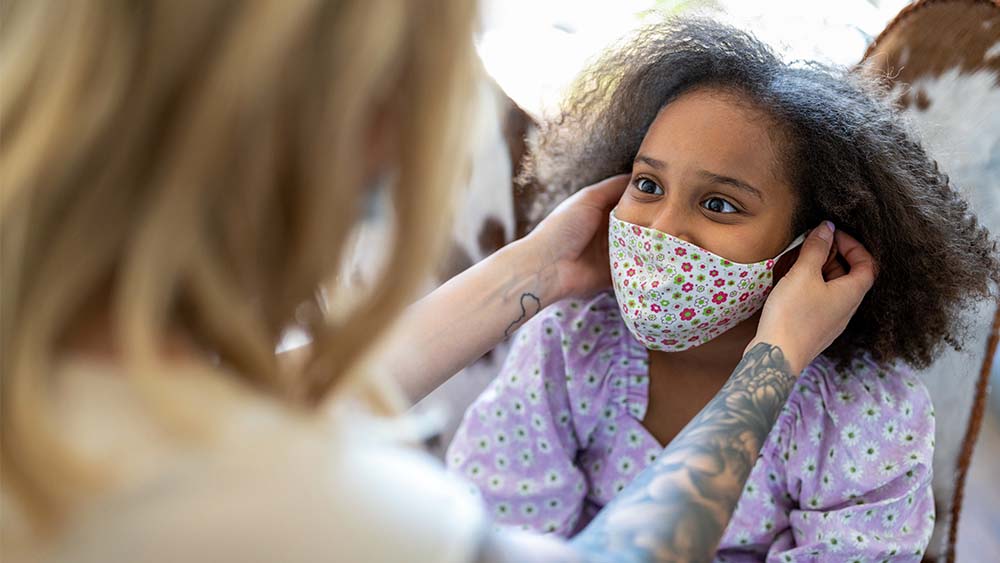
Research supported by NIH is examining whether masks and mask mandates have an impact on child development.

Research supported by NIH is examining whether masks and mask mandates have an impact on child development.
What you need to know
Evidence shows that masks reduce the transmission of COVID-19 among unvaccinated and vaccinated people. In many places, children as young as 2 years old are required to wear masks in certain indoor settings, such as public transportation, restaurants, and grocery stores. While masks can protect children from COVID-19 infection, it is unclear how mask-wearing behavior and mask mandates influence children’s cognitive and social development.
What will the researchers be doing?
The Eunice Kennedy Shriver National Institute of Child Health and Human Development (NICHD) has provided supplemental funding to two ongoing childhood studies to understand mask usage and behaviors among children from geographically diverse areas.
The first supplement focuses on childhood development among low-income families. Researchers will assess mask usage of children and their caregivers and whether wearing masks has any effect on a child’s language, emotional, and brain development. This research will supplement the Baby’s First Years study, which examines the role of economic resources in early development — specifically, whether unconditional cash payments can positively affect emotional and brain development.
The second supplement will support data collection on the frequency of child mask usage in public indoor settings — including schools — and whether the child’s school district has mask mandates. This new data will be collected as a part of the Panel Study of Income Dynamics Child Development Supplement. The Panel Study of Income Dynamics is a national study that has continually tracked demographic, socioeconomic, and health outcomes for families since 1968.
Why is this research important?
NIH wants to gain a comprehensive understanding about how the COVID-19 pandemic has affected the health and well-being of all people, including children. Masks are an important way to protect children from COVID-19, but whether they influence a child’s development is unknown. NIH can leverage current large, geographically diverse childhood studies to collect data and answer these important questions about masks, brain development, and social and emotional growth.
Where can I go to learn more?
Use Masks to Slow the Spread of COVID-19
-
The Centers for Disease Control and Prevention’s current guidance on wearing masks during the COVID-19 pandemic.
-
NICHD funds this study, which is focused on understanding the effect of poverty on early childhood development.
Panel Study of Income Dynamics
-
NICHD also supports the Panel Study of Income Dynamics, which is a long-term study of families across the United States. The Child Development Supplement follows the children of these families over time.

News and Stories
Read stories about the efforts underway to prevent, detect, and treat COVID-19 and its effects on our health.
 An official website of the United States government
An official website of the United States government

